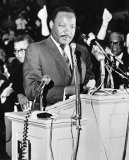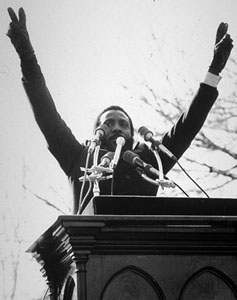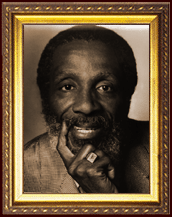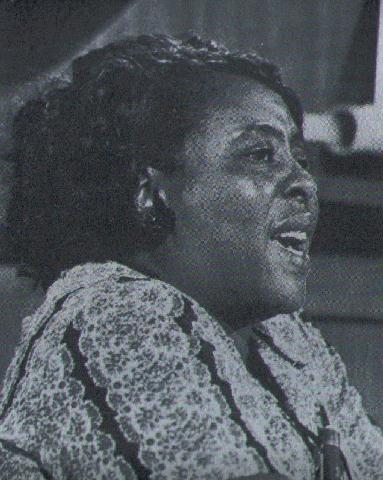
|
THE CLAIM Reproductive rights (i.e. "abortion" rights) for women is like civil-rights for blacks and other minorities. To try to deny women reproductive rights is the same as trying to deny African-Americans civil-rights. Dr. Martin Luther King Jr. was a great advocate of women's reproductive rights, and for this he was awareded Planned Parenthood's Margaret Sanger Award on May 5th, 1966. THE TRUTH Dr. Martin Luther King Jr. certainly believed in birth-control, but all the evidence available shows he was staunchly against abortion. One researcher writes: "Dr. Martin Luther King, Jr., stridently denounced abortion as a form of genocide in many speeches." (Lifelines, Winter 1997, p.14 online) Dr. King did in fact receive the Margaret Sanger Award in 1966. But it is also a fact that in 1966, Planned Parenthood was still (at least publicly) anti-abortion. They were still using a pamphlet they wrote and published in 1963 titled Is Birth Control Abortion?. The pamphlet read:
"Is birth control abortion? Definitely not. An abortion kills the life of a baby after it has begun. It is dangerous to your life and health. It may make you sterile so that when you want a child you cannot have it. Birth control merely post-pones the beginning of life." (Is Birth Control Abortion, Planned Parenthood pamphlet, Aug. 1963, p.1) Planned Parenthood was anti-abortion until the early 1970s because of two reasons: 1) Some of its members and directors were anti-abortion. 2) PP did not wish to hurt their campaign to promote and legalize birth-control by advocating legalized abortion. In 1966, and before, Planned Parethood was publicly against abortion, but for birth-control. So was Dr. King; so it shouldn't be surprising that he accepted an award from them. Dr. King did not know (as most people even today don't know) that Margaret Sanger was a racist, elitist, and eugenecist. She knew that if he hopes for a controlled black population were to be realized then PP would have to enlist the help of black ministers. She knew that black ministers were very well respected in their communities. She once wrote: "The mass of Negroes, particularly in the South, still breed carelessly and disastroubly, with the result that the increase among Negroes, even more than among Whites, is from that portion of the population least intelligent and fit.*** Planned Parenthood used Dr. King in order to promote birth-control; a practice he would have vehemently agreed with. But today, pro-Choice advocates use the memory of Dr. King to promote abortion; a practice which he vehemently disagreed with. Another researcher has written: "Some people against abortion: Mother Teresa, Martin Luther King, Jr., Gandhi, His Holiness the Dalai Lama (the leader of Tibetan Buddhism), feminist Susan B. Anthony, Elizabeth Cody Stanton,...and Alice Paul (author of the original Equal Rights Amendment)." (Sacred Heart Catholic Essays: Abortion, p.1 online, emphasis added) Author Tanya L. Green wrote: "Blacks in the civil rights movement first charged the abortion industry with genocide in the 1960s." (The New Civil Rights Movement, p.2 online) On January 17, 2000, Martin Luther King Jr.s niece, Alveda King, spoke at a pro-life meeting at Faneuil Hall of Boston University. She said:
"What would Martin Luther King say if he saw the skulls of babies at the bottom of abortion pits? If Martin Luther King's dream is to live, our babies must live. We have been fueled by the fires of women's rights. What about the rights of the baby who is artifically breached. We can't sit idly by and allow legal murder." (Martin Luther King's Niece Supports Right To Life, Boston University Daily Free Press, 18 January 2000, p.1) Alveda King's father was A.D. King; Martin's brother, and a civil-rights leader in his own right. He died in 1969.
 DR. RALPH DAVID ABERNATHY In 1957 Dr. Martin Luther King Jr. founded the Southern Christian Leadership Conference as the umbrella organization for the civil-rights movement in the South. The co-founder of Dr. Ralph David Abernathy. When Dr. King was assassinated in 1968, Dr. Abernathy became President of the SCLC. Dr. Abernathy also became a founder and Vice President of the American Freedom Coalition: "Among the values pomoted by AFC are a strong national defense, opposition to abortion and pornography,...." (A Promise for the Future, American Freedom Coalition pamphlet, Sept. 1987, p.1) Dr. Abernathy continued to preach against abortion until his death. REV. JESSE JACKSON The only associate of Dr. King that has become a pro-Choice advocate is the Rev. Jesse Jackson. But this was not always so. From the 1960s until about 1980 Rev. Jackson was a staunch pro-Life advocate. Father Richard A. Donnelly writes: "The most well-known religious leader who has parted from the pro-life stand of his leader, Rev. Martin Luther King Jr., is the Rev. Jesse Jackson." (Current News, p.3 online) In many speeches Rev. Jackson gave during the late 1960s and 1970s he always likened abortion to slavery and genocide. Rev. Jackson was a featured speaker at the 1977 pro-Life "March on Washington", where he told the tens of thousands who had gathered the following: "There are those who argue that the right to privacy is of [a] higher order than the right to life,...that was the premise of slavery. You could not protest the existence or treatment of slaves on the plantation because that was private and therefore outside your right to be concerned. Steven Hayward writes: "And then there was the prominent Democrat who said of abortion in 1973 that it is 'too nice a word for something cold, like murder.' That author of these words was the Rev. Jesse Jackson." (Who Are The Extremists?, p.3 online) In a letter to Congress Rev. Jackson once wrote: "As a matter of conscience I must oppose the use of federal funds for a policy of killing infants.*** Pro-Life advocate and President of the American Life League, Judie Brown, has written: "As Jackson implied, a human person exists from fertilization/conception. Jackson's remarkable admissions are facts that cannot be changed with time, no matter how many politicians abandone this truth for the sake of political gain." (ibid.) Why did Rev. Jackson turn from a pro-Life advocate to a pro-Choice advocate? Some have speculated it had to do with his bids to become President of the U.S. Some claim that the Democratic Party hierarchy informed Jackson in 1983 that they would oppose his bid to be nominated as the Democratic presidential candidate if he did not take "the Party-line" (i.e. become pro-choice). Rev. Jackson ran for the Democratic nomination in 1984 and 1988. He lost both bids.
 DICK GREGORY Another civil-rights leader and King associate was Dick Gregory; comedian, actor, author, and Presidential-candidate. Gregory had authored a number of books on racism in America. In 1968 he ran for President under the Peace and Freedom Party; which called for equal rights and an immediate end to the Vietnam war.
 In 1971, Gregory told Ebody magazine the following: "Government family progams designed for poor Blacks which emphasize birth control and abortion with the intent of limiting the Black population is genocide. The deliberate killing of Black babies by abortion is genocide--perhaps the most overt of all." (Ebony magazine, October, 1971) Decades later Gregory said: "I fully support the right to life of every human being, from conception until natural death. In addition, I unequivocally endorse a total human life amendment to the U.S. Constitution, that would promote the value and dignity of every human life." (Statements of Black Americans On Abortion, p.1 online)
 FANNIE LOU HAMMER One of the best-known civil-rights activists in the 1960s was Fannie Lou Hammer. She was born in 1917 in Montgomery County, Mississippi, the granddaughter of slaves and the youngest of 20 children. On August 31 1962 she and 17 other black Mississippians took a bus to the courthouse in Indianola, the county seat, to register to vote. Police stoped the bus, and because, they said, the bus was "the wrong color", they arrested Fannie and the 17 others. After being released from jail her white landlord told her to get off her land. Her offence? She had tried to vote. Ten days later 16 bullets were fired into the home where she was staying. Mrs. Hamer began working on welfare and voter registration programs for the Southern Christian Leadership Conference and the Student Nonviolent Coordinating Committee (SNCC). On June 3, 1963, Fannie and other civil-rights workers were arrested in Winona, Mississippi. Their crime was, again, trying to register to vote. While in Montgomery County jail she was stipped and beaten severely; with injuries that would last her until her death in 1977. In 1964 civil-rights groups created the Mississippi Freedom Democratic Party (MFDP); because the Mississippi Democratic Party had only white delegates; even though the state was 51% black. Fannie appeared at the 1964 Democratic National Convention in Atlantic City, New Jersey, and her testimony on the injustices in Mississippi, and the Mississippi Democratic Party (which did not allow black delegates) was aired on all three television networks (ABC, CBS, NBC). The Democratic Party then agreed to seat two delegates of the MFDP in their delegation. Most historians believe that the public exposure of her plight on national television led President Johnson to sign the Voting Rights Bill the next year; giving millions of African-Americans (especially in the South) the right to vote for the first time since the late 1870s. Journalist Mary Galbraith writes: "During the Civil Rights Movement, Mississippi sharecropper Fannie Lou Hammer helped change the nation's attitudes on democracy and the right to vote.*** Fannie has said: "The methods used to take human lives, such as abortion, the pill, the ring, etc., amount to genocide. I believe that legal abortion is legal murder." (Similar Principles, p.6 online) Today, feminists and civil-rights activists all over the world portray Fannie as a hero. There is even a play about her which is presented at many meetings of Feminists and civil-rights workers around the world. No mention is made of her pro-Life stance.
 CONCLUSION Dr. Martin Luther King Jr. was not a champion of "reproductive rights", but rather a man who believed in the human rights of all people; including the Unborn. Most (if not all) African-American civil-rights leaders in his day agreed with him. |

 |
The Baha'i Faith and Abortion |